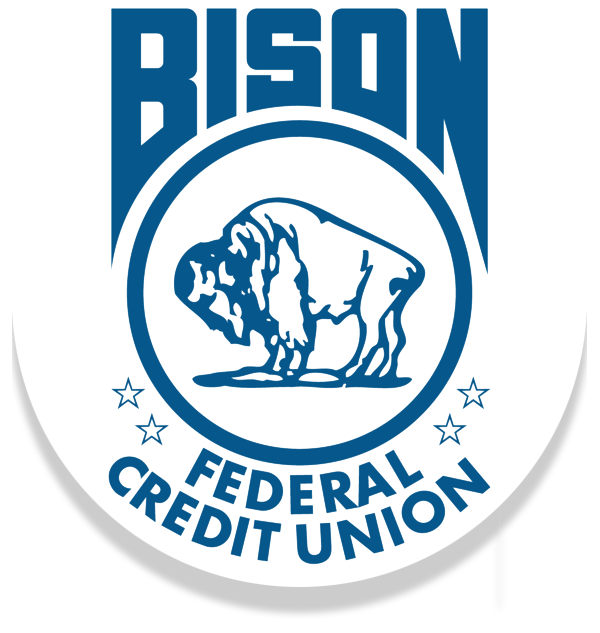About Us
Then:
On February 15, 1951, a special group of people, inspired by Ralph Burnett, met in a room at Oklahoma Baptist University (OBU) to establish a credit union. Those original incorporators were Charles V. Manes, Edward Hurt, Jr., Leroy Bond, C.V. Milliken, Clifford J. Smith and Ralph Burnett.
On April 9, 1951, Bison Federal Credit Union opened its doors. The office was located in Thurmond Hall on the campus of OBU. The staff consisted of volunteers and the services were limited to share accounts and fixed rate loans. By December 31, 1951, the membership had increased to 61 and the total assets were $4,704.24. After the success of the first nine months, the credit union never looked back.
Now:
Since we began, BFCU has grown to over 4,500 members and over $47 million in assets. We also offer a large variety of services including drive-thru, audio response, ATMs, Individual Retirement Accounts, Certificates of Deposit, checking accounts, debit cards and more. Our loan portfolio has also expanded to encompass all varieties of loans. We have become a full service financial institution striving to offer the most current technology without losing our focus of providing the best service. We will continue to live by our motto of "Serving you is all we do…"
What is a cooperative and how does a credit union differ from a bank?
A cooperative “is a private business organization that is owned and controlled by the people who use its products, supplies or services. Although cooperatives vary in type and membership size, all were formed to meet the specific objectives of members, and are structured to adapt to member's changing needs.” In Bison Federal Credit Union’s case it is owned by members who can use its many financial services. People who do not qualify to be members may not use BFCU services. If BFCU is a cooperative that has many of the services of a bank, who gets the profits from BFCU operations? All excess money generated by BFCU is retained by BFCU. The retained excess money generated by BFCU is used to build capital (so more loans may be made to members) or to reduce the cost of services (to reduce bank fees and loan interest collected from members). So members of the BFCU benefit from doing their financial business with the BFCU cooperative by paying lower rates on loans and lower or no fees for bank type services.
Who may be a member of BFCU? Anyone who lives, works, worships, owns a business or attends school in Pottawatomie County, Oklahoma may become a member of BFCU. You have to present a valid picture id and deposit a minimum of $10 in a savings account to become a member of BFCU.
As a member you may apply to use the financial services of BFCU for personal loans, auto loans, and some types of housing loans. You may also have a BFCU credit card, debit card, or open a share draft account (a checking account). BFCU members can buy certificates of deposit (CDs). Interest is paid on share accounts, certificates of deposit, and some share draft accounts. For a more complete list of financial services offered, click HERE.
So what is the difference between a bank and a credit union? The largest difference is what happens to excess money (profits) generated by the bank or credit union. A bank uses excess money to build capital (make more loans) and typically distributes a portion of profits to the owners of the bank in the form of dividends. BFCU retains a portion of profits to build capital enabling it to make more loans and the rest of profits are used to reduce or eliminate fees charged to members using financial services. BFCU is charted by the federal government through NCUA (National Credit Union Association). BFCU is governed by NCUA regulators who operate as examiners with most if not all the same or similar laws that apply to banks. BFCU is audited by certified public accountants (CPAs) on a regular basis. NCUA insures savings in nearly identical fashion as FDIC does for banks. Given the similarities to banks is why BFCU provides financial services to its members as owners and the BFCU motto is “Serving You Is All We Do”.




